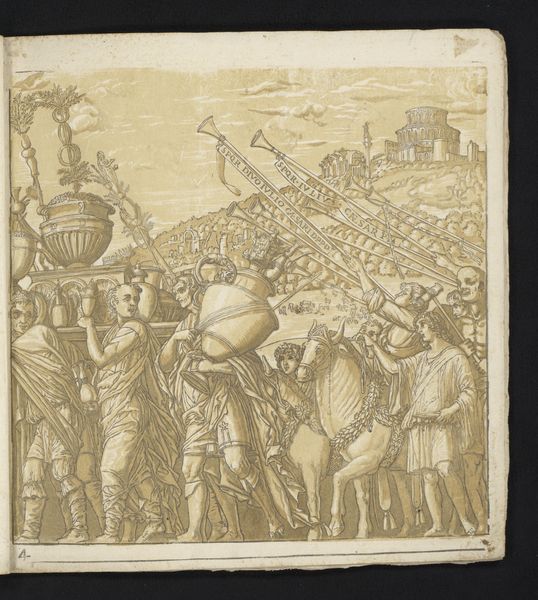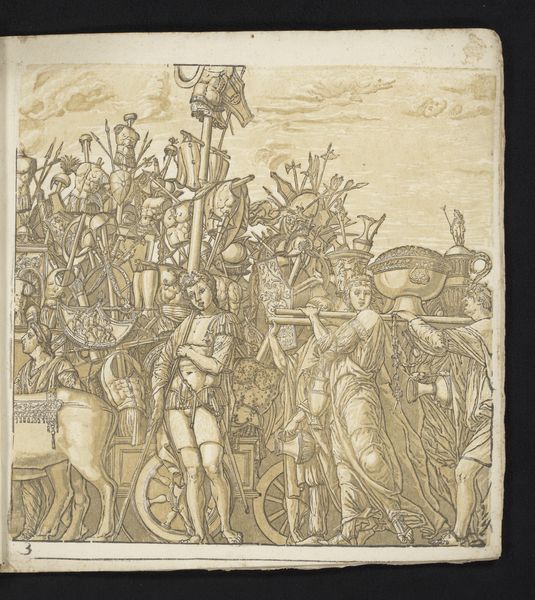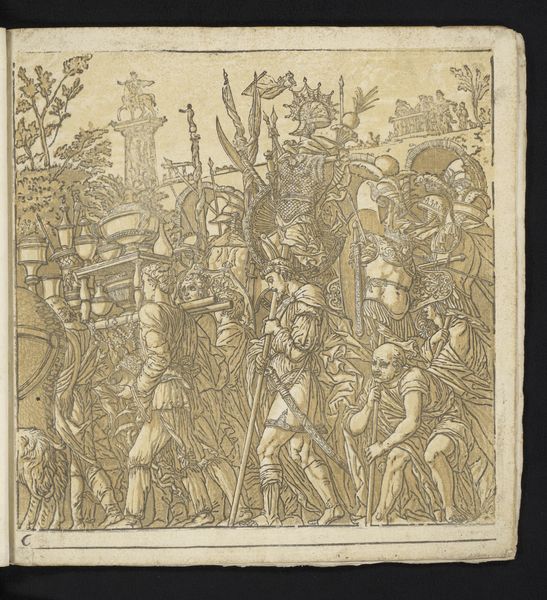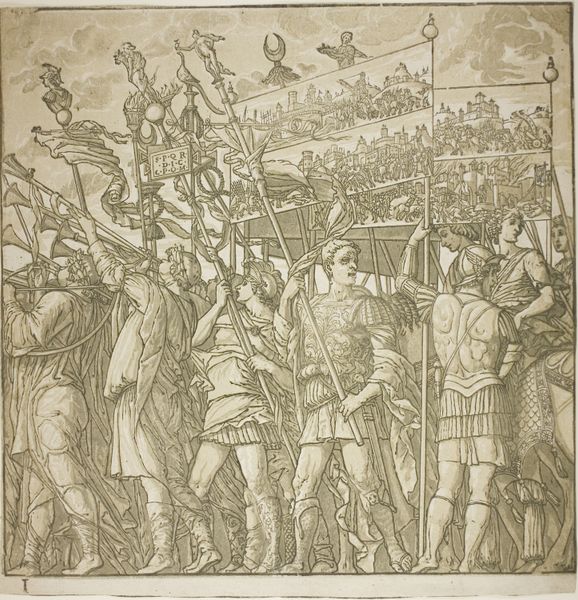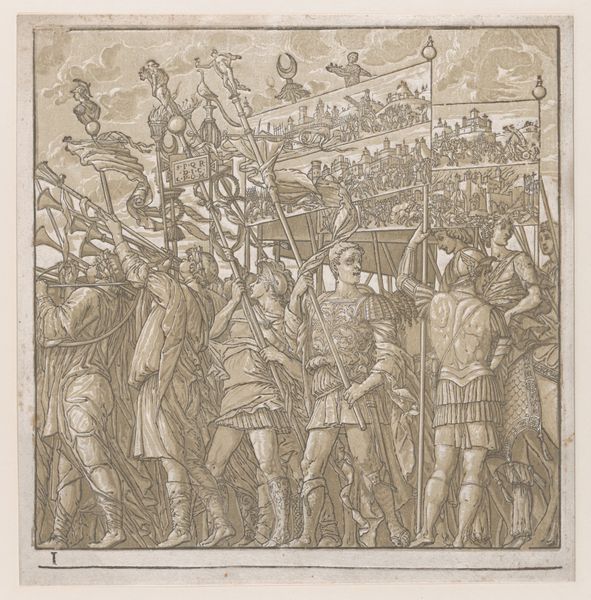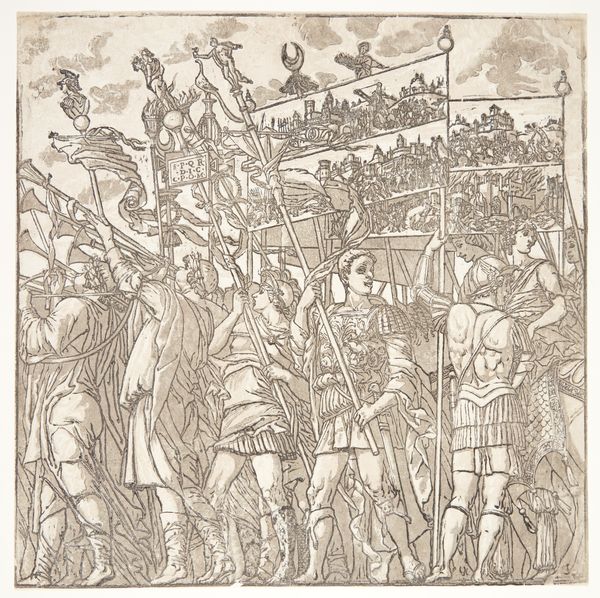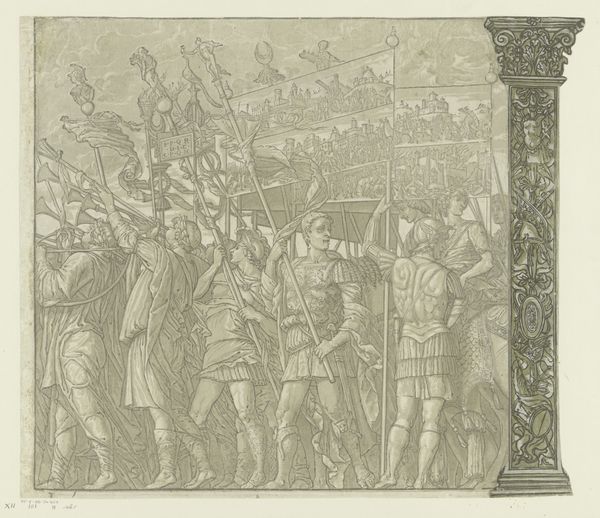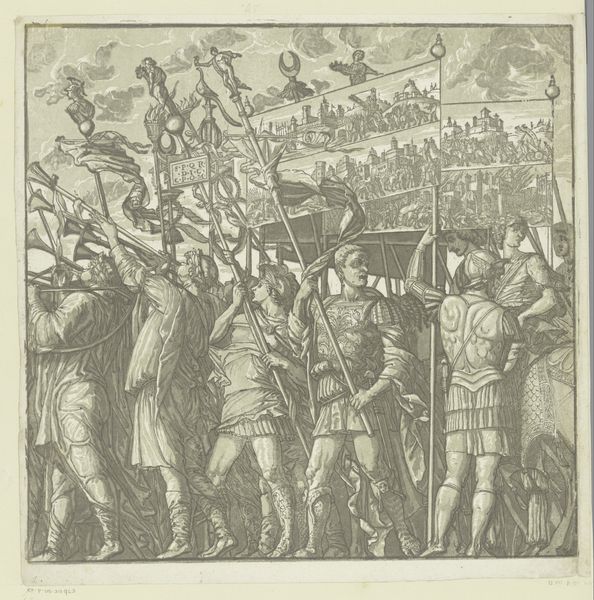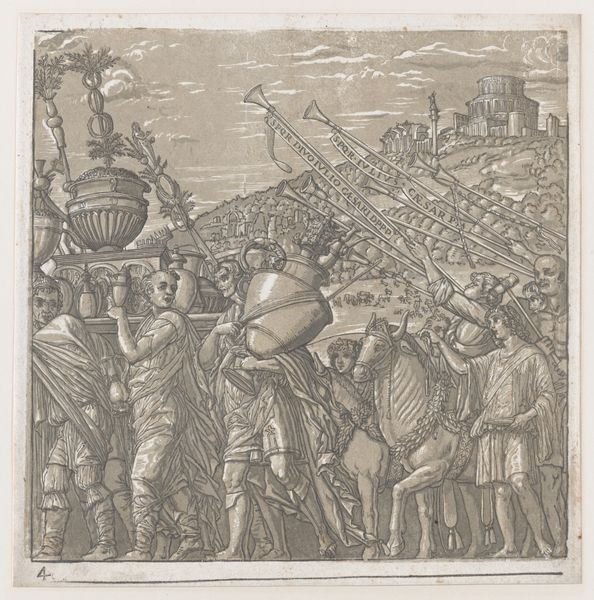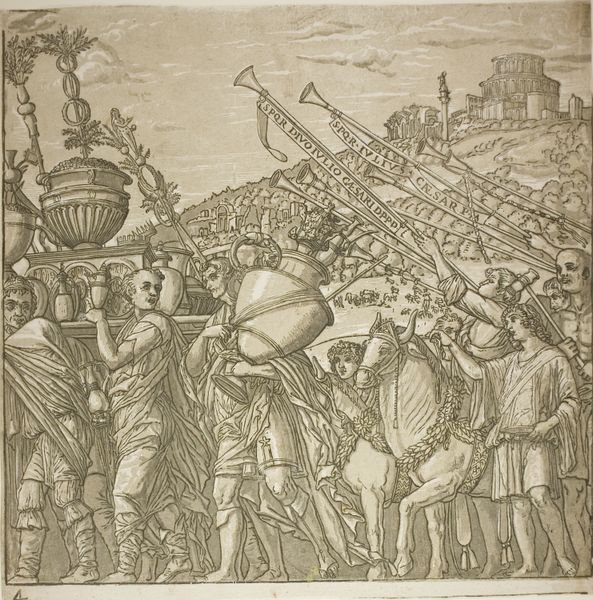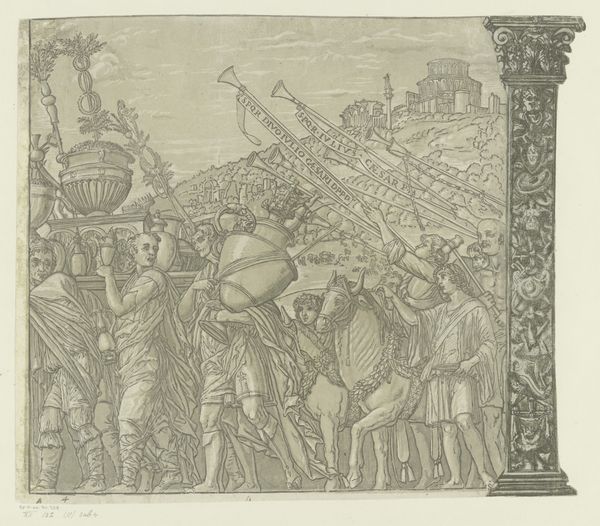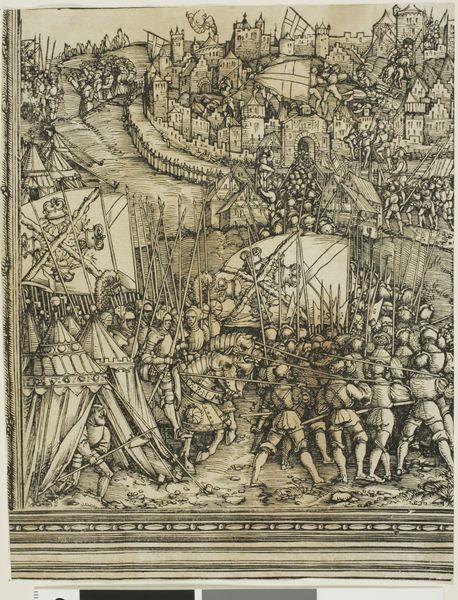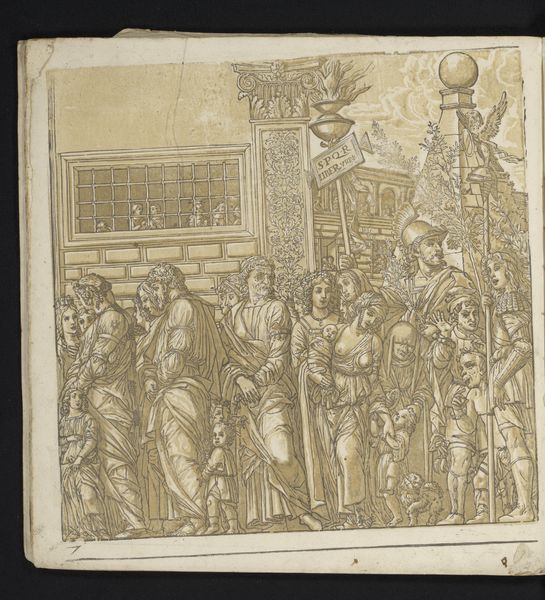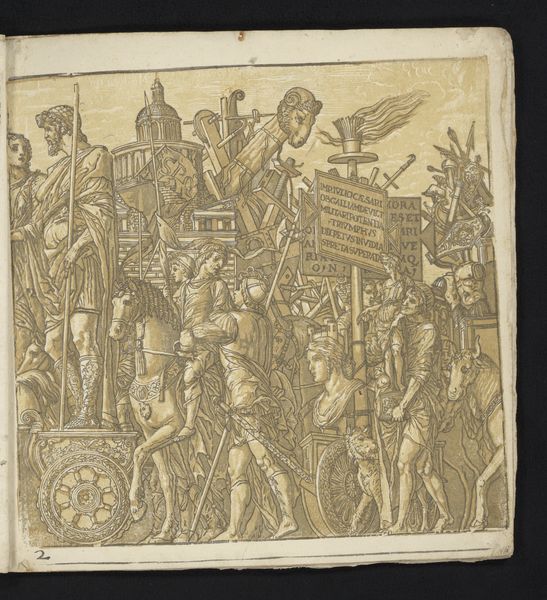
drawing, paper, ink, engraving
#
drawing
#
narrative-art
#
classical-realism
#
figuration
#
paper
#
ink
#
history-painting
#
academic-art
#
italian-renaissance
#
engraving
Dimensions: height 415 mm, width 400 mm
Copyright: Rijks Museum: Open Domain
Andrea Andreani created this woodcut, ‘Triumph of Julius Caesar’, sometime in the late 16th or early 17th century, a period marked by the Renaissance’s fascination with classical antiquity and its complex relationship with power, spectacle, and representation. Here, the artist revives the grandeur of ancient Rome, but it’s vital to consider this revival within the context of early modern Europe, where displays of power were often intertwined with political and social control. The glorification of Caesar, a figure of military might, occurs in a time when European societies were grappling with their own power structures, colonial ambitions, and social hierarchies. What does it mean to celebrate this image of imperial power, then? Andreani’s print not only reflects an admiration for the past but also becomes a mirror reflecting the present. It asks us to consider how societies construct narratives around leaders, valorize conquest, and legitimize dominance. This image serves not just as a historical record but as an invitation to critically examine the underpinnings of authority and the legacies of those who wield it.
Comments
No comments
Be the first to comment and join the conversation on the ultimate creative platform.
